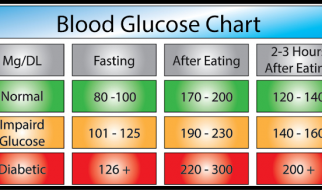
These days, the barriers to entry for starting a record label are practically nothing. Many labels have been formed by someone saying ?Ok, I have a record label.? Ultimately, signing up for Soundcloud and creating a Facebook page technically makes you a record label.
It?s obvious that the music industry is going through a lot of changes. Between the Internet, streaming services, and shifting consumption patterns, record labels can?t operate the way they did two decades ago. For major labels, this presents a lot of complications. For independent labels, it creates opportunities. Being small and nimble is an advantage, and we?ve seen how indie labels can implement some really unique and forward-thinking tactics to better suit the times.
However, if you really want to give yourself the best chance of success, not to mention protecting your investment, going through a proper set-up process is important. This guide will familiarize you with the major steps behind getting your label up and running.
1) Pick a Name for the Label.
The first step is, of course, pick a name for your record label. However, before deciding on a name, you can save yourself a lot of headache by making it is available. Google should be your first stop, then some additional places to check for name availability include:
Godaddy, EHost.com, or other web domain registrar
Your state?s database of corporations and LLCs
Federal Trademark Registry (USPTO.gov)
If you are going to sell merchandise with the label?s name on it (e.g. T-shirts), you should think about trademarking the name of your label.
2) Decide on a Business Structure.
Many indie labels and countless others skip these formalities, at least initially, because of the cost-benefit analysis. Forming a legal entity costs money, and one of the primary benefits of forming an LLC is the limitation of personal liability should something go wrong with the business, which isn?t a serious risk early in one?s music career.
Nevertheless, you will need to be an actual, legal business if you want a business bank account or credit card, and it certainly makes tax time a lot more manageable.
If you are starting the label with other partners (or ?members? as they?re referred to with LLCs), you will need a partnership or LLC operating agreement that addresses terms such as, 1) the percentage of ownership each partner has, 2) how each partner can leave the business, 3) how decisions will be made in the company, etc. The state where your LLC is located may impose additional obligations on your agreement.
3) Find Your Music.
For many, the idea of starting a record label first came from hearing some great music that no one else was putting out. If that?s the case, then Boom, move on to the next step. However, if you know you want to start a label, you will need to have a release ? or even a few releases ? lined up to move on to the next steps, like finding distribution and promotion.
Since the music industry is so competitive, it takes time and knowing the right people. Music is out there competing for attention, so a little bit can go a long way in separating yourself from the noise. Therefore, many veterans offer long-tested advice for how to pick music, such as:
Release music you believe in;
The music should come first, then the label;
Think quality, not quantity; and
Establish your own lane.
4) Artist Deals and Recording Contracts.
Once you decide on what music you want to release, you will have to set up a deal with those artists. One of the benefits for artists to sign with an indie label is that they can be much more flexible with the deals they can offer, however, some questions you?ll want to address with the artist (likely in a recording agreement) include:
Will the artist deliver a master, or is the label paying for recording costs?
Is the label paying the artist an advance?
How will earnings from the releases be split between the label and the artist? Will the label recoup manufacturing costs and promotional costs before paying the artist?
Will the artists get to approve promotional expenditures over a certain amount? If so, how much?
Is the deal for just one album or several?
Will the musicians be entitled to audit your books? How often, and what kind of notice do they need to give?
5) Figure out Distribution.
Distribution used to be reserved for major labels, who had the resources to ship physical copies to fill thousands of stores across and the country and around the world. However, these days, much of the action has shifted to digital distribution, and now any artist can easily get their music in the biggest online music stores throughout the world.

Ari Herstand wrote an in-depth comparison of many digital distribution companies (which you can find here), which will put your music on sites like Apple Music, Spotify, and Deezer.
However, with the barriers to getting your music in stores now limited to the sign-up fee for one of these companies, effective promotion is necessary in getting your music heard above the noise.
6) Promote your Music.
Artists sign with labels largely because they offer an opportunity to get their music heard by a new audience. A major aspect of this is social media, and record labels should maintain consistent profiles on Twitter, Facebook, and Instagram.
A major decision for labels starting out is whether to handle promotion themselves, or hire someone to do the job. Promotion costs can add up quickly, so many new labels turn to handling promotion in-house, which will require time and effort to establish the same relationships that a publicist may be able to bring to the table immediately.
7) Collecting All of Your Royalties.
Hopefully, at this point, you?re starting to see some sales and streams starting to come in for your music, and perhaps you received your first check from your digital distributor. However, this is not all the money you?re entitled to. This probably does not include mechanical royalties, public performance royalties, Soundexchange royalties, etc.
These are all dense concepts, which I am going to leave for part 2, but in the meantime, Dae Bogan wrote a great e-book, The DIY Musician?s Complete Starter Guide to Being Your Own Label, which will familiarize you with these concepts, and what steps to take to make sure you are collecting all of the royalties that are sitting out there for you.
Additional Reading:
Comparison of Digital Distributors by Ari Herstand ? http://aristake.com/post/cd-baby-tunecore-ditto-mondotunes-zimbalam-or
The DIY Musician?s Complete Starter Guide to Being Your Own Label by Dae Bogan ? https://daeboganmusic.com/2017/10/09/creativefuture-releases-the-diy-musicians-complete-starter-guide-to-being-your-own-label-publisher-written-by-dae-bogan/


